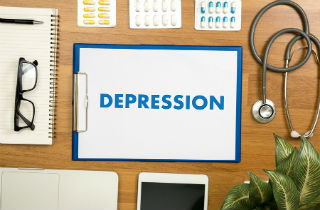Everyone has felt down or upset at some point in their lives. It is a natural part of the human experience. For the most part, these feelings only last a day or two and then people recover. The question is, when does short term sadness turn into long term depression? We review here and invite your questions about depression and living a sober life at the end.
Clinical depression vs. short term unhappiness
#1: The duration of time
There are a number of ways to understand the differences between clinical depression and short term unhappiness. The most common way to tell is to use the length of time someone has been feeling down. A few days is perfectly normal but people who have been depressed for weeks or months are very likely to be suffering from clinical depression.
#2: The source or cause of the feeling
Another symptom is tied to the source of the depression. When people go through short bouts of depression, they often have an easily identifiable cause behind their negative emotions. This could be the loss of a loved one or a relationship breaking up. Feeling negative emotions for a time after a sad or upsetting experience is perfectly normal.
On the other hand, the causes behind long term depression are much harder to identify. There is often not a single event or trigger for people who are clinically depressed. Some people with clinical depression even say they feel worse because they do not know why they are sad.
#3: Different side effects
Clinical depression also has side effects that short term depression does not. People who are just a bit down may feel bad but clinical depression can be like having the flu. Clinical depression can make people so tired they cannot get out of bed. They may stop caring about everything including activities they once were passionate about. Those with long term depression also isolate themselves. They push away from friends and family often to the point where they feel completely alone.
In essence, people dealing with long term depression are so exhausted and distressed that they see no future or hope. This makes gathering the energy to do anything seem impossible and can make it impossible to function day to day. For others, dealing with depression in addiction recovery can become manageable with some basic interventions.
#4: Changes in behavior
The final major sign that someone is suffering from clinical depression is major changes in behavior. People suffering from clinical depression often have erratic sleep patterns, become angry or irritable easily and may engage in reckless behavior. In contrast, people who are only dealing with short term depression are less likely to exhibit major changes in their behavior. They may act sad or depressed but the overall change is short and far less dramatic.
How can I address clinical depression?
People suffering with clinical depression may feel hopeless but there are some positive steps that they can take to help their condition. So where can you find help for depression and addiction issues? Here are some suggestions:
- The first and most important is to see a general practitioner or family doctor. A doctor can give you medical advice to help deal with depression and may be able to refer you to someone with specialist experience in your problem.
- Once you have spoken to a doctor, it is often a good idea to speak about your depression with family and close friends. Many people with depression are afraid of the stigma their condition caries but the worst thing someone with depression can do is isolate themselves. By bringing family members into the loop, people with depression can build an effective support network.
- Another great tip is to work towards getting healthier. Many people with depression have found at least some relief by engaging in regular exercise and taking up a healthy diet.
- Finally, depressed people can join support groups or counseling groups. This helps them understand that they are not alone and provides them with a great source of information on how to aid their recovery.
Shared experiences in recovery from addiction
While none of these steps are guaranteed to cure depression, they are a great way to start recovery. We invite you now to ask questions about depression during addiction recovery, or to share your experiences. We try to respond personally and promptly to all inquiries.









Related Posts